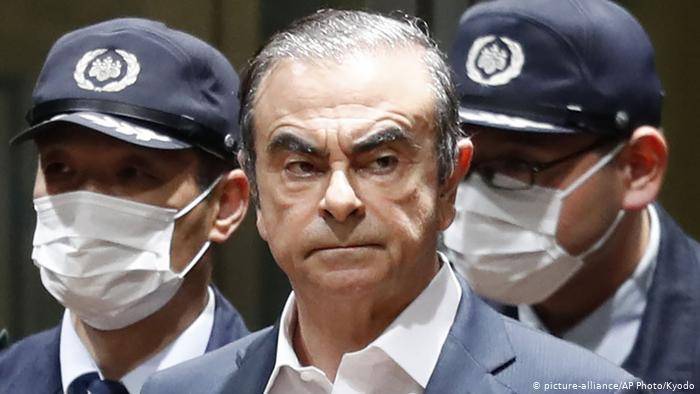Carlos Ghosn, the former president of the Renault-Nissan Alliance, will testify starting Monday before a delegation of French judges who traveled specifically to Beirut to interrogate him as part of investigations targeting him in Nanterre and Paris, particularly over allegations of misuse of company assets. On the agenda for the five-day interrogation are two events at the Palace of Versailles, payments to a commercial distributor in Oman, and consulting services provided while Ghosn was still the CEO of Renault-Nissan.
Ghosn's three lawyers, Carlos Abu Jaoudeh, Jean-Yves Le Bourni, and Jean Tamaly, stated in a release that "the defense team had previously found procedural flaws in the French cases that they consider serious." They added that these flaws "weaken the judicial mechanism, stemming from the unconventional methods used in the Japanese investigation, which remains the primary source of the French files."
The lawyers confirmed that the 67-year-old former automotive mogul, who is being questioned as a witness, has no way to challenge the legality of the proceedings. They argued that "only an indictment" against Ghosn — which the three lawyers expressed a desire for — would allow him "to denounce the judicial flaws plaguing the case and (to enable) hearings."
If indicted, Ghosn would have access to the case files and therefore know the allegations against him, particularly enabling him to file motions such as requests for a second opposing opinion or to hear witnesses or conduct confrontations. However, Ghosn cannot be indicted as long as he remains outside French territory.
The former businessman, who is subject to an international arrest warrant issued by Interpol, is forced to stay in Lebanon since escaping from Japan in December 2019. Ghosn was arrested in November 2018 at Tokyo Airport and held for several months before being released on bail with restrictions preventing him from leaving the archipelago while awaiting trial on charges of embezzling funds from Nissan. He managed, however, to evade Japanese authorities' surveillance.
He is suspected of hiding inside a large black box resembling those used for transporting musical instruments and being flown on a private jet from Osaka Airport to Atatürk Airport in Istanbul and then to Beirut Airport. The French-Lebanese-Brazilian businessman asserted that he "did not flee from justice" but wanted to "escape from injustice," denouncing a "conspiracy" orchestrated against him by the Japanese authorities.
This situation has complicated the work of the French investigators, who also wish to interrogate the former automotive tycoon, especially due to suspicions of exploiting company assets: in July 2020, an investigating judge requested to hear from him, but Ghosn insisted that he could not leave Lebanon. The judges then decided to travel to Lebanon for questioning in January. However, the session was postponed to spring due to health restrictions related to the coronavirus.
### Mutual Legal Assistance
After all these events, Carlos Ghosn will finally be heard in connection with open investigations in Nanterre and Paris. The interrogation, which will be conducted by investigative judges from Nanterre and Paris with the attendance of investigators from the Central Office for Combating Corruption and Financial and Tax Violations in France, is set to continue until Friday as part of mutual international legal assistance. Lebanese judges will also attend the hearings.
In Nanterre, the judiciary suspects that Ghosn personally benefited from an agreement made between Renault and the institution managing the Palace of Versailles by organizing two evenings for special occasions. Investigators are also looking into suspicious payments worth millions of euros between "RNBV," the Dutch subsidiary of the Renault-Nissan Alliance, and the French car manufacturer's distributor in Oman, "Suhail Bahwan Automobiles."
In a significant recent development, a Renault shareholder filed a new lawsuit against Ghosn on May 18 regarding "large sums" paid "without the shareholders' knowledge" to "RNBV." In Paris, following a complaint filed by the same shareholder, investigating judges have been scrutinizing the consulting services that "RNBV" contracted with former French Justice Minister Rachida Dati and French crime expert Alain Bauer while Ghosn was still CEO of the automotive group. Dati and Bauer, who deny any wrongdoing in the contracts, have been designated as assisting witnesses, as has the French-Iranian Monique Sepehri, Ghosn's former aide at Renault.




